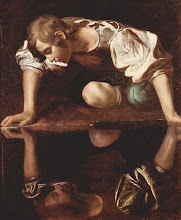 Alcuin was born around 735 and grew up in York, where he attended the cathedral school. Encouraged by his teachers, one of whom became the Archbishop of York, he was appointed head of the school, where he was one of the key figures in preserving and enlarging the cathedral library. He gained such a reputation as a teacher that in 782 Charlemagne invited him to come to the continent to establish a palace school and scriptorium. Alcuin stayed with Charlemagne till his retirement in 796, when Charlemagne appointed him abbot of a monastery at Tours.He died in 804.
Alcuin was born around 735 and grew up in York, where he attended the cathedral school. Encouraged by his teachers, one of whom became the Archbishop of York, he was appointed head of the school, where he was one of the key figures in preserving and enlarging the cathedral library. He gained such a reputation as a teacher that in 782 Charlemagne invited him to come to the continent to establish a palace school and scriptorium. Alcuin stayed with Charlemagne till his retirement in 796, when Charlemagne appointed him abbot of a monastery at Tours.He died in 804.
Alcuin's palace school at Charlemagne's court seems to have been an important influence in the adoption of the script we know as Caroline Minuscule (example above) and the copying of manuscripts in the new script. The picture below of Alcuin presenting manuscripts to Charlemagne was painted by Victor Schnetz in 1830 and is now in Paris's Louvre.

Alcuin wrote a number of textbooks in the form of dialogues. One example is this dialogue between Alcuin and Charlemagne's son Pippin. He also produced a set of mathematical puzzles Propositiones ad Acuendos Juvenes. The Wikipedia article on this work (caveat quaerens) links to a Latin version and a couple of English translations.
Alcuin also edited the Vulgate and wrote a number of theological works on the Trinity. The Catholic Encyclopedia and the Anglican Biographical Sketches have articles on Alcuin from their respective viewpoints. (all images are in the public domain and are taken from wikicommons)





2 comments:
One very cool guy. I'm surprised no one's thought to make him a fictional detective.
We can't all be detectives. There wouldn't be enough bodies to go round.
Post a Comment